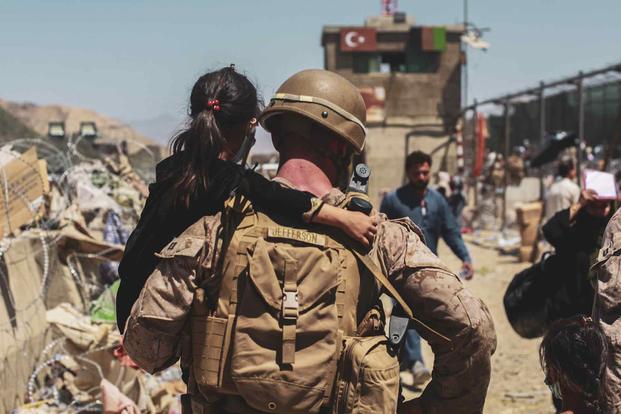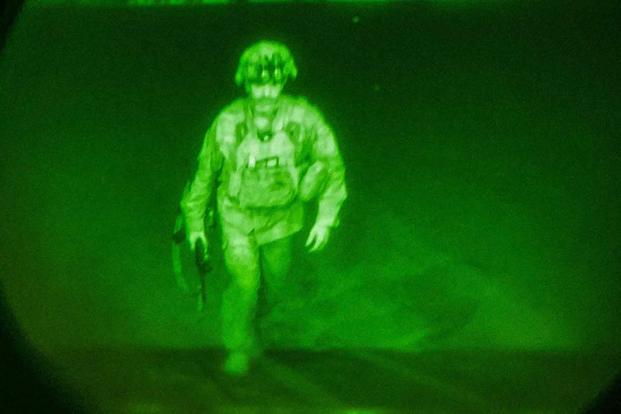
The new year will see a new Congress, and one of the first orders of business for Republicans is to investigate the Biden administration for how it handled the U.S. withdrawal from Afghanistan — an operation that saw a suicide bombing, and with it, the deaths of 13 U.S. service members and over 100 Afghans in its final few days.
Despite horrifying images of Afghans clinging, then falling from C-17s and stories from veterans reckoning with the war’s chaotic end, the withdrawal — and the 20-year conflict — has largely receded into the background of the broader public debate.
“Why did it go so badly? Why were Americans left behind? Why were Afghan partners we promised to protect, 100,000 of them, left to the Taliban?” Texas Republican and incoming Foreign Affairs Committee chair Michael McCaul told the New Republic last week. “For you to make this kind of decision, for God’s sake have a plan. And what was the plan? I haven’t seen one.”
The White House message on the drawdown has been relatively consistent since the last U.S. military boots stepped off Afghan ground for the last time.

The decision to withdraw was meant to save American lives, hundreds of thousands were rescued, the administration assumed the Afghan government could “hold on” after the military drawdown, and that the Trump administration put them in an untenable situation after it made promises to the Taliban about an impending American departure.
“The previous administration’s agreement said that if we stuck to the May 1st deadline that they had signed on to leave by, the Taliban wouldn’t attack any American forces, but if we stayed, all bets were off,” Biden said on Aug. 31, 2021, in an address to the nation after the withdrawal.
“So we were left with a simple decision: Either follow through on the commitment made by the last administration and leave Afghanistan, or say we weren’t leaving and commit another tens of thousands more troops going back to war,” he said.
But according to reporting from the Washington Post, the White House is bracing for political turmoil as a result of the looming probe.
Despite the withdrawal having already been picked apart by both sides of the aisle and a parade of officials having already testified at the Capitol, an investigation rehashing the events of the calamitous withdrawal will put further pressure on the Biden White House and senior military leadership that watched the collapse unfold.
The increased talk of the investigation comes as Congress spiked an omnibus provision that would have provided a pathway for Afghan refugees looking for a more permanent home in the United States — a problem that stemmed from the withdrawal that Republicans want to probe.
The Afghan Adjustment Act, which would give residency to tens of thousands of stateside Afghans facing an uncertain future, was dropped from the $1.7 trillion spending bill — and despite bipartisan support and a worldwide effort from American veterans advocating for the allies that helped them during the war.
Many of those veteran advocates leveled criticism for the spike at Congressional Republicans, some of whom have voiced concerns about the vetting process for refugees.
It is unclear how the potential probe into the drawdown will be conducted in the new Congress, or if the Afghan Adjustment Act has a path forward in its halls. But as the new year looms, the potential for images of the withdrawal and its aftermath to permeate the American consciousness once again are nearing a fierce resurgence.
 Afghanistan Peace Campaign
Afghanistan Peace Campaign